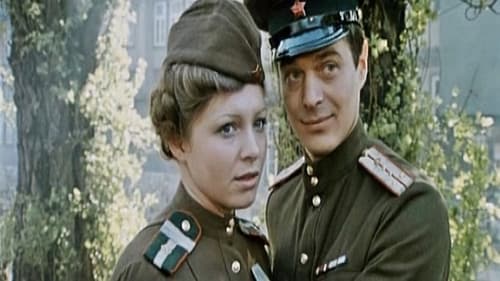Bolot Beyshenaliev
出生 : 1937-06-25,
死亡 : 2002-11-18
略歴
Bolot Beyshenaliyev (Russian: Болот Бейшеналиев; June 25, 1937 — November 18, 2002) was a Soviet cinematographer, film and theater actor. People's Artist of Kyrgyzstan. Father of actor Aziz Beyshenaliyev.
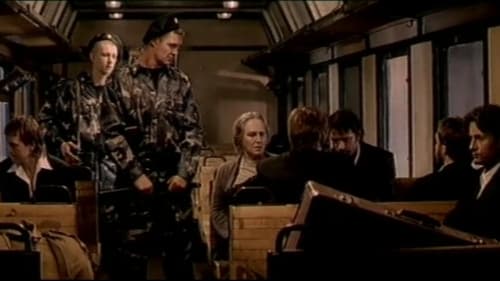
After Polina, a mother of six, loses her husband, who went to jail for stealing charcoal and was killed when he tried to escape, she stays behind without any support. To be able to survive, Polina and her family start a folk group. But soon she understands that her children deserve a better fate, and she takes the desperate decision to steal a plane and go abroad... Fifteen years later, Polina is released from prison and finds out that fate has scattered her children all over the country: one is in the army, another is a miner in the Donbass, and the oldest, Lyonchik, who used to be in a mental institution, now pretends to be insane. Polina gathers all of her sons to free their older brother from the psychiatric hospital...

A young man Danesh learns of ancient relics, including a ruby that once a year can help find treasure in the Canyon of Scorpio. As the old man holding the knowledge passes away, Danesh receives the ruby and a map, setting out for an adventure full of mystery and danger, friend and foe, set under the dazzling southern sun.

Божей
Opera movie
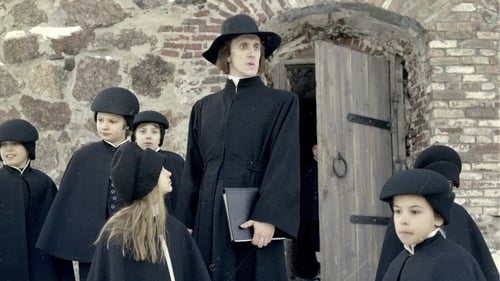
Village Senior
Closely based on Franz Kafka's book "Das Schloß", the movie shares the same action on a land surveyor who is called to a village to do a job that no one seems to have ordered. Once there, he takes up the struggle against bureaucracy emanating from the castle.

Шинвысхан
A staggering historical epic about the intrigue and turmoil of the East Asian civilization of Otrar, before its systematic destruction at the hands of Genghis Khan.

Zhadobin
Ivan Khristoforov discovers the strange property of foreseeing explosions. Trying to understand the reason and meaning of this unusual ability, he turns to family history. The attention of the secret public service doesn't bode well for Khristoforov.
The imaginary journey of the hero in his past, bearing the imprint of a children's worldview, and the present, at times just like a dream.

XIII century. Prince Daniel of Galicia returned from the Horde, where he graciously have allowed to rule in Galicia in exchange for recognition his submission to Khan. But he can not accept the humiliation. He begins to prepare for war with the hordes of Batu, who conquered many Russian principalities. The Hungarian king, Lithuanians and Poles promised to support Daniel, but Pope Innocent IV refuses to lend a hand. Daniel's army is compelled to reflect the invasion of nomads herself.

Воюпта шаман
1734. In the north of the Urals, in the impenetrable forests of Orthodox Russia, one of its small nationalities lives — the Voguls, who have preserved the rituals and customs of their ancestors. Like any nation, the Voguls have their own history, traditions and gods, the main one of which is the golden goddess, the patroness of the Voguls. Once upon a time, many centuries ago, she stood on the top of a mountain, and anyone could come and ask for her help.

Short directed by Talgat Temenov.

Sakhei
Veliky Ustyug at the beginning of the 17th century. Semyon Dezhnyov falls in love with the daughter of a rich merchant — Avdotya, but the groom is poor. The girl's father sets a condition: Dezhnyov must go to Siberia and get rich — only then will he receive consent to marry. Dezhnyov agrees and leaves for Siberia. Although he passes the test, he does not return to Avdotya. He finds a strait "from a warm sea to a cold one": from the mouth of the Kolyma he swims to the Pacific Ocean and opens the strait between the continents.

Vetly
Poetic tale of love between of the hunter Gilgil and his beautiful wife Tintin, told through the Chukchi myth imagery.

A family of a private stud-farm head takes cover from a Civil War in a forsaken estate in Urals steppe. Once an old family friend Victor, lieutenant of White Guard, shows up in the estate and claims that he wants to come out of action and live according to the laws of God. The old man marries his daughter and Victor, but that is the end of peace in this house, taking into account that the white Cossacks are getting nearer

Темирбей

In a Russian POW camp, four Germans determined to end WWII agree to pose as Red Army soldiers. Are they patriots or traitors, heroes or opportunists? Although they go to the frontlines, their new Russian comrades are initially unsure whether to trust them. Three of them then accept a mission behind German lines, but they are unprepared to fire upon their countrymen and it ends up costing the life of a Russian soldier. In the meantime, the fourth man has fallen in love with Russian radio operator Svetlana. After being criticized by the other Russians, he too agrees to participate in the mission..

Man Follows Birds is a coming-of-age story of a young Uzbek poet surrounded by violence. Farouk is fascinated by trees and Khamraev films him with a lot of melancholy and tenderness. Cast apart because he’s poor and his father’s drunk, Farouk is not happy in his village. When his father dies, he decides to go in the mountains with his best friends. Looking for nature at its purest, the two teenage boys have to deal with the cruelty of violent barbarians. Their trip will also make them meet a lost orphan girl and a wise beggar.

Two-part epic about the establishment of Soviet power in Tajikistan based on the works of S. Aini.
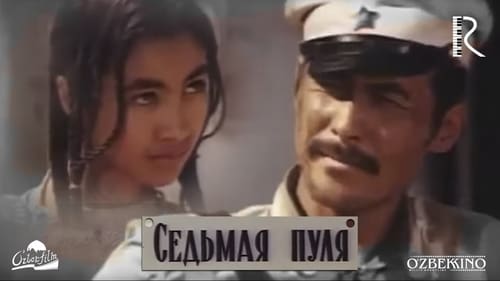
Despite the restoration of Soviet power in the area, Basmachis continue to arrive from across the border, bringing death and destruction to peaceful villages. One of the bands of rebels is led by Khairulla who is pitted against the militsiya (local militia) leader Maxumov. At first it seems hopeless for Maxumov as the rebels capture most of his men, winning them over to his side. He has only one strategy left; to give himself up, and try to explain to the people that Khairulla has deceived them, turning the soldiers back to revolution. Later in pursuit of his enemy, he chases Khairulla across a river. He has only one bullet left -- the seventh, and he must not miss his target!

Azizov
"Worship the Fire" is a 1972 feature by Tolomush Okeev

A Bolshevik army officer and Uzbek who has been nursed back to health by a young Uzbek woman to whom he is now married, gains responsibility for the local village in 1929. He is urged by comrades in Tashkent to have the local women drop their chadors and veils but he is also told that he should not force this on anyone. His wife declines to take off her veil, so a 14 year old girl steps forward to set the example, over the objections of the local Muslim clergy and most of the village men. After the girl is killed, and the commissar is shot, his wife takes him to the hills to nurse him back to health once again. She begs her husband to leave the village. Instead when he decides to return, she is pressured by her father to continue to wear the veil.

Kasymov
In November, 1942, near the Volga, Stanlingrad is under siege of Commander Friederich Paulus and his 330,000 men. The Russian high command unleashes an operation to protect the Mishkova River to avoid that about four hundred tanks join Paulus' army. The Soviet artillery soldiers protect their position with their lives in a bloodshed with few survivors.

Peta
This film is based on the classic novel of the same name by writer Ivan Franko, one of the most famous figures of Ukrainian literature. It is set during the 1200s and the invasion of the medieval Ukrainian-Russian state of Rus' by Chengis Khan's Golden Horde. Due to its having been produced during the Soviet era, the story's aspect of class-conflict between the "heroic" peasantry and the "decadent" noble particularly emphasized here.

A desert-set war drama by Ali Khamraev
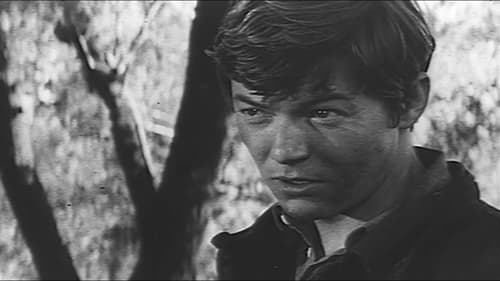
Sailor Garkush and minder Nomokonov after the death of the whole team remain on the armored boat N042 together. Fulfilling the order of the command, they blow up the bridge, but find themselves behind enemy lines. In different ways, an infantryman Soloukhin, director of the bank Kozubenko, circus artist Elton and felon Donchak, who escaped from prison, get on an armored boat. Different in character and inclinations, they did not come together right away. Over time, they were united by a common hatred of the enemy, and in the battles with the Nazis their courage, resourcefulness, selflessness were forged ...

Artist
Based on the novel of the same name by Chinghiz Aitmatov. The action takes place during the days of World War II in one of the villages of Kyrgyzstan. The famous artist Seit recalls his childhood, his first unrequited love for Dzhamilya, the wife of his older brother, and the wounded front-line soldier Daniyar, whose songs taught to notice beauty... A poetic story about love, the secrets of creation, the national customs of the Kyrgyz people.

Tolongai was born and raised on Kyrgyz soil. Her husband and three children were killed in the second world war, but strength and courage have not abandoned her. The earth teaches Tolongai to fight and gives her strength to live on.
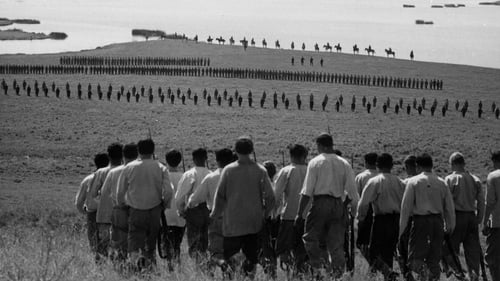
Chingiz
In 1919, Hungarian Communists aid the Bolsheviks' defeat of Czarists, the Whites. Near the Volga, a monastery and a field hospital are held by one side and then the other.

Ovchinnikov
Based on the novel of the same name by Grigory Svirsky.
1942 year. The Great Patriotic War. The navigator Bratnov was shot down during the war, was captured, fled, returned to his people, was demoted and sent to serve in the construction battalion. His old front-line comrade Major Kabarov accidentally met him and took him to his unit. Kabanov, knowing about the lack of experienced navigators, is seeking to transfer Bratnov to his air force in the Northern Fleet, in the Arctic, to a tiny rocky island — "to the ends of the world."

Set in the rural village of White Storks, the story tackles the taboo subject of an extramarital affair. Strong-willed Malika, married but childless, is openly consorting with another man with whom she shares a seemingly tender bond.
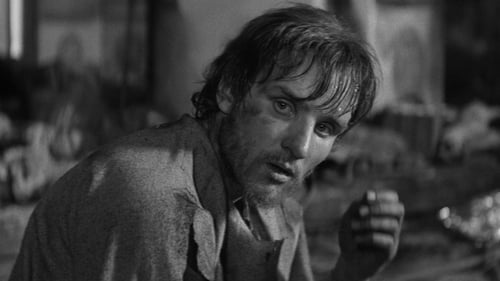
Tatar Khan
タルコフスキーとコンチャロフスキーという、旧ソ連の枠を脱して活躍することになる二大俊英が協力して脚本を執筆し、中世ロシア史上最高のイコン画家ルブリョフを主人公に、当時の社会と民衆の関わりを巨視的に捉えた歴史大作で、全体で二部構成。冒頭の、巨大な気球での飛行を試みる男たちの描写が象徴する閉鎖的な時代に、信仰と芸術の力によって風穴を開けたのがルブリョフと言える。彼は同窓の僧侶キリールに陥れられかけ、逆に大公の覚えめでたく宮廷画家となるが、連日、寺院の白い壁に向かい一筆も動かさない。神の愛を描きたいと願う彼の眼に時代は暗く映りすぎた。そして、公弟にそそのかされたタタール人が城を襲う(ここからが第二部)。ルブリョフは白痴の少女を救おうとして敵兵を討ち、後悔から筆を絶ち、修道院に戻るが、誰とも口をきかない。今や落魄の身のキリールとの再会……。ロシアはなお暗黒の中にあったが、大公は巨大な鐘の鋳造で威信回復を図る。今はなき名人の息子ボリースカの指導によって作業は開始され、ルブリョフはそれを興味深く見守る。秘訣を父に教わったという少年だが、実は鐘を作りたいばかりについた出まかせで、ようやく大鐘完成の暁に彼は真実を泣きながらルブリョフに明かす。彼は少年を賞賛し、自らも励まして言った。“君と一緒にやって行こう”……。15年にわたる無言の行の末、最初に出た言葉がそれであった。彼は再び絵筆をとり、その後、それまでの白黒とうって変わった鮮やかなカラーで写し出される偉大な作品群を残したのである。観ることが主人公の忍従に重なるような重厚な作品だが、それ故にラストの解放感は筆舌に尽くし難い。丸裸の自己と神--という一対一の構図を発見するまでの確執を描くのは、後のタルコフスキー作品にも通じるテーマだ。

Dyuyshen, the school teacher
Dyuishen is assigned to the mountainous Kirghiz region of Central Asia by the Young Communist League after he is discharged from the Red Army. It is 1923 and the Civil war has ended. The former soldier becomes a teacher, bringing the Leninist doctrine to the remote Moslem area where elders did not allow children to go to school. He falls in love with one of his students, but the young woman is sold by her father to a wealthy chieftain. When the school is burned down, the majestic poplar trees that are a source of local pride are cut down to rebuild the new structure.
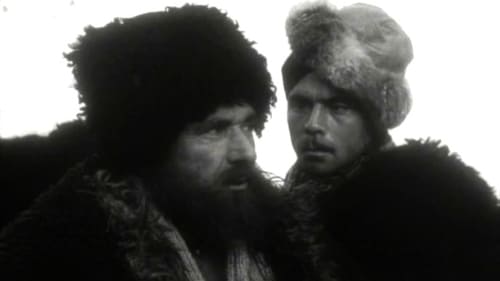
Mukash is chased by officials, learns of the devastation of war from a blind woman and helps her daughter to freedom beyond the river crossing, he, having to choose a tragic solution.









